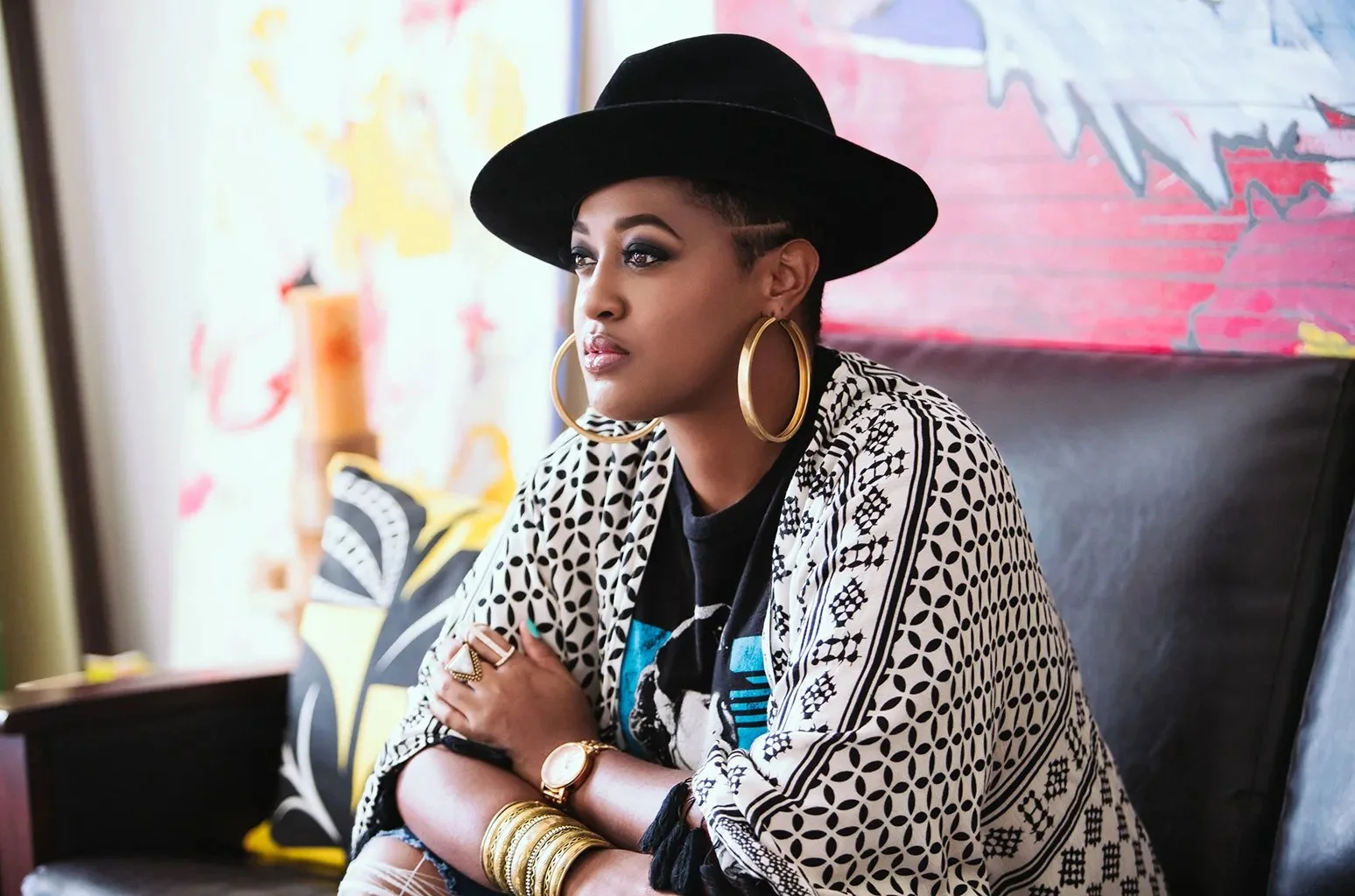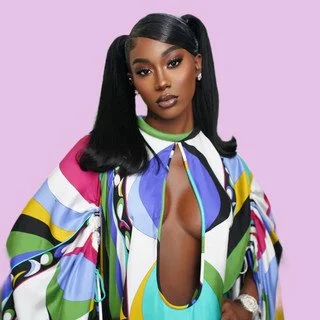Beyond The Declared End: The Girl Rapper Wave is FAR From Over
The role and representation of women in hip-hop have often been overlooked, undermined, or dismissed historically. However, a new era has dawned, one that showcases the undeniable talent, resilience, and influence of female rap artists. Gone are the days when they were confined to the sidelines or considered a fleeting trend. Or so we believed, at least.
Recently, rapper turned media personality Joe Budden made a controversial claim, asserting that "The Girl Rapper Wave is Over." His proclamation sparked a firestorm of debate within the hip-hop community, questioning the future of female rap. However, far from being extinguished, a vibrant tapestry of female voices is redefining the genre today, challenging boundaries, and leaving an indelible mark on the cultural landscape.
To truly understand the present and future of female rap, we must first pay homage to the pioneers and trailblazers who laid the groundwork for generations to come. Artists like Queen Latifah, with her empowering anthems and unapologetic presence, and Missy Elliott, a visionary who defied categorization with her innovative sound and groundbreaking music videos, shattered the glass ceiling for women in hip-hop. Their contributions not only opened doors but also paved the way for a new generation of artists who would carry the torch forward.
In a genre often dominated by braggadocio and machismo, female rap artists have emerged as lyrical alchemists, seamlessly blending skill and substance. Their artistry transcends superficial trends and challenges the notion that female rap is losing its impact. Artists like Rapsody, Tierra Whack, and Noname have garnered critical acclaim for their ability to craft intricate narratives, thought-provoking metaphors, and social commentary within their verses.
Rapsody, known for her impeccable wordplay and introspective storytelling, has consistently delivered albums that push the boundaries of what rap can be. Her projects, such as "Laila's Wisdom" and "Eve," tackle themes of black empowerment, self-love, and the complexities of womanhood. Rapsody embodies the essence of female rap's evolution, using her lyricism to challenge societal norms and shed light on important social issues.
But it's not just about the lyrics; the sonic landscapes crafted by female rap artists are equally groundbreaking. Tierra Whack, known for her genre-bending soundscapes and unconventional storytelling, defies categorization and pushes the boundaries of what rap can be.
Tierra Whack's debut album, "Whack World," stands as a testament to her creative genius and willingness to experiment. The album consists of fifteen one-minute songs, each accompanied by a visual. Whack effortlessly blends genres and transitions between moods, showcasing her versatility as both a rapper and an artist. Her boundary-pushing approach challenges traditional song structures, demonstrating that innovation and creativity have no limits.
Noname, with her introspective and socially conscious lyrics, has gained acclaim for her ability to address personal struggles and societal issues with poignancy and vulnerability. Her album, "Room 25," explores themes of identity, relationships, and the pursuit of purpose. Noname's unique perspective and poetic lyricism contribute to the rich tapestry of female rap, debunking any notion of a fading wave.
In a genre where authenticity is often revered, female rap artists are redefining what it means to be true to oneself. No longer confined to a singular image or narrative, they embrace their individuality and reject the notion of a monolithic "Girl Rapper Wave." Rico Nasty, Flo Milli, Megan Thee Stallion, and many others refuse to conform to a monolithic "wave" and instead carve their own paths, enriching the landscape of female rap with their distinct voices and perspectives.
Rico Nasty's punk-infused rap and unapologetic attitude challenge traditional notions of femininity. Her energetic delivery and fearless persona resonate with a generation seeking authenticity and empowerment. Rico Nasty's unique style and refusal to be confined to a single genre exemplify the diversity within the female rap scene.
Flo Milli, known for her confident and charismatic delivery, has quickly risen to prominence with her infectious hits and memorable one-liners. She embraces her individuality and unapologetically celebrates her femininity, challenging societal expectations and redefining what it means to be a female rap artist in the 21st century.
Megan Thee Stallion's unapologetic celebration of female sexuality and empowerment has resonated with audiences worldwide. Her bold lyrics and captivating performances have garnered widespread acclaim, solidifying her position as a prominent figure in contemporary rap. Megan Thee Stallion's success serves as a testament to the power of authenticity and to the impact of female rap artists who refuse to be confined by societal norms or limitations.
The diversification of female rap goes beyond just musical styles. It extends to the stories being told and the perspectives being shared. Artists like Megan Thee Stallion, with her unapologetic celebration of female sexuality and empowerment, and Noname, whose introspective and socially conscious lyrics resonate deeply, add layers of depth and complexity to the genre.
While Joe Budden's declaration may have brought attention to the resilience of female rap, it is crucial to acknowledge the challenges that women in the industry continue to face. Gender bias, sexualization, and a lack of representation are hurdles that persist, but these barriers only fuel the determination of female rap artists to overcome and thrive. They have proven time and again that their talent and artistry deserve recognition on equal footing with their male counterparts.
In recent years, there has been a growing movement within the hip-hop community to address these challenges and advocate for equality. Organizations such as Women in Hip Hop Collective and She Is The Music have emerged to provide support, resources, and platforms for female rap artists. These initiatives aim to amplify female voices, break down barriers, and create a more inclusive industry.
Female rap artists themselves have become vocal advocates for change, using their platforms to shed light on issues of gender inequality and championing the cause for equal representation. Through their activism and artistic expression, they are reshaping the narrative surrounding female rap and demanding the recognition they deserve.
Joe Budden's statement may have sparked controversy, but it has also shed light on the undeniable talent and resilience of female rap artists. The future of female rap is far from over; it is a limitless journey of growth and possibility. As more women find their voice, break barriers, and redefine the genre, the mic remains firmly in their hands, poised to tell stories, shape culture, and inspire generations to come.
The continued evolution of female rap is an ongoing testament to the power of artists who refuse to be silenced or confined by societal expectations. By celebrating and amplifying these voices, we can truly appreciate the kaleidoscope of talent that defies the limitations imposed by Joe Budden's proclamation. Female rap artists are not just challenging the status quo; they are shaping the future of hip-hop and leaving an indelible mark on the cultural landscape. As we navigate this uncharted future, it is essential that we recognize and support the diverse voices that contribute to the ever-evolving legacy of female rap.








